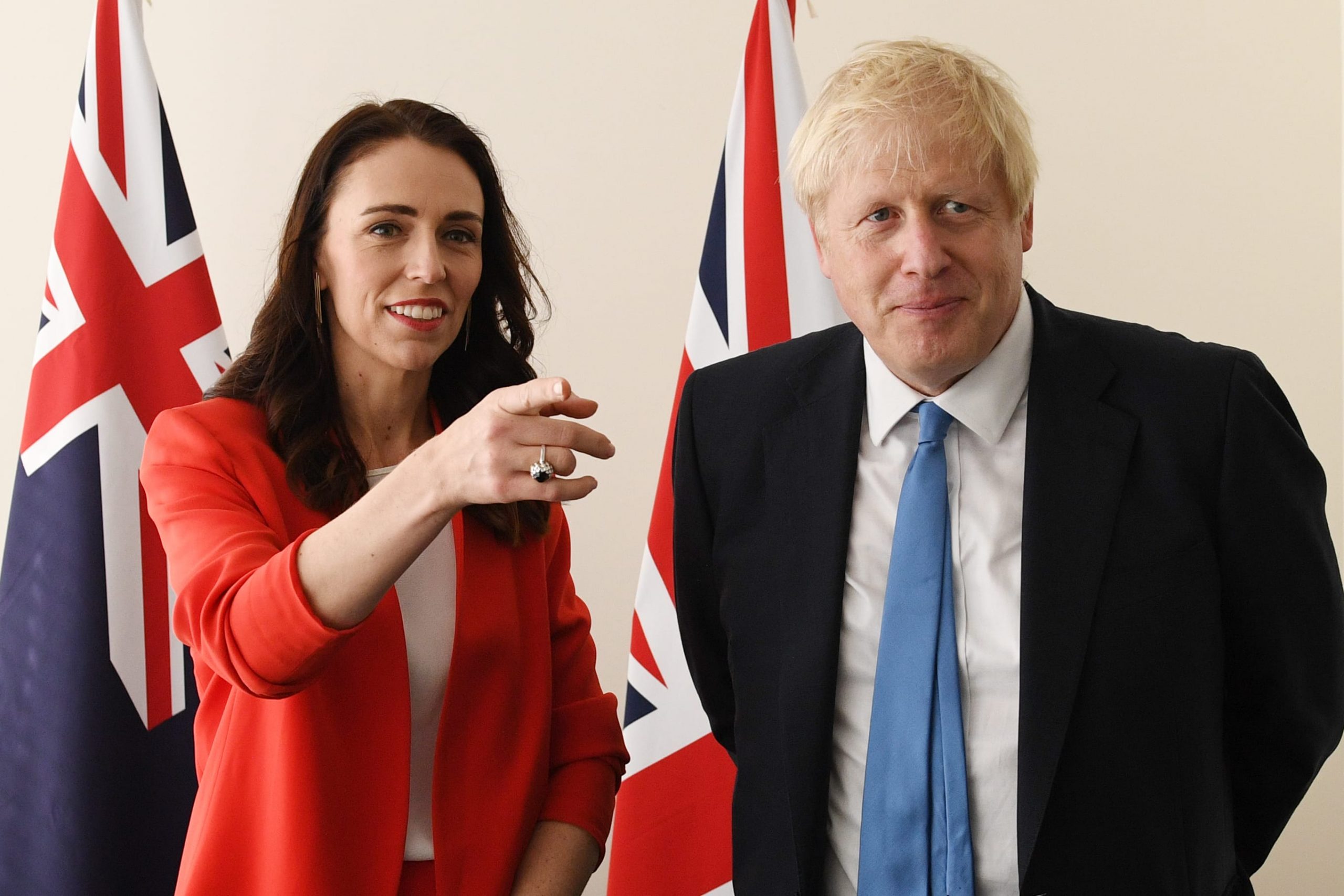The pressure will be on the Ardern government to once more reverse its policy on allowing Huawei to access its 5G network, following a stunning reversal from the UK.
Britain had previously allowed the Chinese-owned telco, accused of conducting espionage for the Chinese Communist Party, to participate in building its sensitive 5G network. But the Johnson government has reversed that decision. New Zealand now stands alone among the Five Eyes nations in giving access to Huawei. Canada is still officially prevaricating.
The decision by Britain to freeze out Huawei within three years has bolstered calls by Australia and the US to ban Huawei from the networks of its Five Eyes security allies and shifts pressure on to Canada and New Zealand to block any involvement by the Chinese telecommunications giant in their 5G rollouts.
Australia, which banned Huawei from its local 5G network in August 2018, has led an international push with the US to block the company from rolling out critical telecom infrastructure on security grounds.
Huawei was founded by a former Peoples Liberation Army general and has been widely accused of conducting espionage for the Chinese communist government. The US alleges that Huawei equipment contains “backdoors” enabling government surveillance. Critics point out that Chinese laws require companies to “cooperate with intelligence services”. Although Huawei denies this, the exact reach of the Chinese law has never been established.
The “Five Eyes” network, “one of the most comprehensive known espionage alliances in history”, is a high-level intelligence-sharing network of Anglophone countries: the United States, United Kingdom, Australia, Canada and New Zealand.
5G is the next generation of wireless technology, which promises to bring greater speed and capacity to wireless internet. On its own, that’s nothing threatening – the threat is that all that extra bandwidth will see more stuff going wireless. As the amount of data transferred scales up, this “increases the attack surface” for hackers. More importantly, more “smart” devices will be wirelessly connected – the so-called “Internet of Things”. Many of these devices have poor security: security cameras are notoriously vulnerable, for instance.
All of this extra, often poorly guarded, stuff going wireless is a potential goldmine of hacking opportunities, especially for security agencies. Allowing possibly-compromised Huawei 5G equipment to link it all adds up, according to security agencies, to an unacceptable national security risk.
For all its espionage denials, China is certainly fiercely determined to force Huawei in on the 5G game around the world.
US Secretary of State Mike Pompeo and Republican senator Marco Rubio accused China of intimidating Australia and other nations to stop them from criticising the communist regime on Sunday[…]
Senator Rubio, the acting chairman of the Senate intelligence committee and senior member of the Senate foreign relations committee, said Beijing’s targeting of Australia was “designed to frighten other countries from standing up to the Chinese Communist Party”.
“The CCP knows that if countries start to question its disinformation, then the image the party carefully cultivates will fall away,” Senator Rubio told The Australian.
The Florida senator said Beijing saw itself in a “systemic competition” with democracies, and he urged US allies to co-operate closely in diversifying supply chains in strategic areas. “Too many commentators and policymakers see no other choice but to accept the CCP’s bullying,” he said.
New Zealand’s Government Communications Security Bureau initially told Spark that it could not use Huawei equipment to build its 5G network because it would “raise significant national security risks”. However, within six months the Ardern government backflipped and overruled the GCSB. Not only was Huawei given access to New Zealand’s 5G, but Spark ranked them as one of their top-three preferred suppliers.
Canada is yet to officially rule on Huawei and 5G, but the issue is sure to come to a head very soon. Communications company Telus seems to be trying to force the Trudeau government’s hand, by announcing that it will start building 5G networks with Huawei equipment. Given Trudeau’s generally weak posture regarding China, it will be interesting to see if he girds his loins to stand up to Beijing’s bullying or not.
The Ardern government is in a unique and risky position. If it sticks with its current policy and Canada follows Ardern’s lead, the two recalcitrants risk fracturing the Five Eyes alliance.
On the other hand, if Ardern grew a pair and told Huawei to take a hike, it might be just the push Trudeau needs to come back into the fold and keep the Five Eyes front united against the Chinese threat.
If you enjoyed this BFD article please consider sharing it with your friends.

